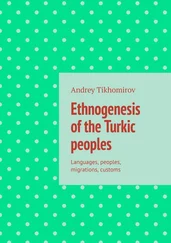The hunt for outstandingly obscure journals has upset readers conversant in Esperanto. A number contacted us after the Australian publication Esperanto sub la suda kruco was nominated, informing us that the journal was neither academic nor, in their opinion, obscure. Jacob Schwartz, a student at the Massachusetts Institute of Technology, explained: “I hope you can understand why speakers of Esperanto, who battle against this daily ridicule from misinformed people, would be offended to be considered ‘obscure.’”
We would like to apologise to readers of Esperanto sub la suda kruco , and we await complaints from infuriated subscribers to The Journal of Fish Sausage with anticipation.
There is no possible way you could respond to this that would result in your being taken seriously. Often, the hopeful Esperantist doesn’t realize he’s doomed at this point and tries to make his case: “Well, look now, Esperanto is spoken by people in more than eighty different countries. It has a rich original literature of more than forty thousand works. It is easy to learn.” His listeners’ eyes glaze over as they mentally sort him into their nonsensical-people pile.
At least dismissive humor is not mean. Another frequent reaction to the idea of Esperanto is anger, especially from people who care about language. On an ask-a-linguist Internet message board, a place where laypeople can have their questions about language answered by a panel of professional linguists, one of these professionals responded to an innocent question about whether Esperanto can be a native language, writing: “I will not try to conceal my contempt for the basket cases who teach their unfortunate children Esperanto.” Contempt? As far as I know, those children grow up to be slightly eccentric but well-adjusted musicians, not serial killers.
Still, it is not hard to understand why so many people find Esperanto so repellent. Language is not just a handy tool for packing up our thoughts and sending them along to others. It’s an index to a set of experiences both shared and extremely personal. More than any other expression of our culture, it is the way we do things—the way we complain, argue, comfort others. We love our languages for this. They are the repositories of our very identities. Compared with them, Esperanto is an insult. It asks us to turn away from what makes our languages personal and unique and choose one that is generic and universal. It asks us to give up what distinguishes us from the rest of the world for something that makes everyone in the world the same. It’s a threat to beauty: neutral, antiseptic, soulless. A Mao jacket. A concrete apartment block.
Strange, then, that I don’t think I’ve ever been anywhere more colorful than Esperantoland. On my second trip there, the sixth All-Americas congress in Havana, I was exposed to so much culture that I started to get a headache. We sang “Guantanamera” in Esperanto on ten separate occasions in ten different Cuban musical styles. At the Arta Vespero (Evening of the Arts)—a staple of Esperanto congresses where delegates from the host country get to strut their stuff—we watched a three-hour extravaganza of every performable art Cuba has to offer, from traditional dances by little girls in white dresses to rumba rap music. For the finale we made a hundred-meter conga line, weaving our way through the Museum of the Revolution. At another staple, the Nacia Vespero (Evening of Nations), attendees from twenty other countries took the stage. A contingent of Mexicans sang folk songs, a Costa Rican played the piano, a Frenchman did a comedy routine about escargots. No, Esperantists don’t want to take away your unique identity. On the contrary, they can’t get enough of it. They just want you to express it in Esperanto so that everyone can appreciate it.
But this doesn’t mean Esperanto has an identity of its own. Isn’t it just a soulless translation machine laid on top of this cultural mutual-appreciation society? If it is, then why did I so frequently think to myself, “God, that is sooo Esperantoland!”?
I started to notice ways of speaking that were hard to translate out of Esperanto. For example, to say “ La Čielo estas blua ” (The sky is blue) is a perfectly understandable, functional way to communicate, but to say “ La Čielo bluas ” (The sky is bluing)—taking advantage of the feature that lets any word root be made into a verb—now that is Esperanto. People also love to use the word etoso to describe the feeling in the air at events. “At my first congress in Toronto I experienced such a bona etoso ” or “I met some Esperantists in Bulgaria, and we spent the evening chatting and playing music. What beta etoso !” The dictionary will tell you that etoso means “ethos” or “atmosphere,” but it will not tell you that it connotes a sort of mystical, positive, Zamenhofian vibe. For the newcomer, dictionary in hand, this word will be interpretable and clear, but for the seasoned Esperantist it will evoke a history of gatherings where the spirit of the Esperanto ideal brought every-one a little closer together.
While there are many words that reflect nuances of the Esperanto experience not captured by their dictionary definitions, there are some words that make sense only within the context of Esperantoland. Krokodili (to crocodile) means to speak in your national language at an event where you should be speaking Esperanto (conjuring up the image of a reptilian beast flapping its big jaws). This behavior is frowned upon, and it is convenient to have it summed up in a word, so that saying, “Hey, stop crocodiling!” is enough to discourage it. The offending party may be an eterna komencanto (eternal beginner)—the name for that fellow who’s been showing up to congresses for years but still can’t speak the language. People may also quietly complain to each other about some verda papo (green pope), a guy who’s always preaching and droning on about the ideals of Esperanto. He is a figure not unlike the Jewish mother—annoying at times, but ya gotta love him. Because he is one of us. He is part of what makes us us. In other words, it’s an Esperanto thing. You wouldn’t understand.
A few months after I returned from the Havana congress, I was watching the news and a personal-interest segment about dog yoga came on. The footage showed attractive New Yorkers in expensive workout clothes doing yoga with their dogs (or rather, around and over their dogs). The attitude conveyed by the newscasters wasn’t so much “How insane!” as “How cute!” I suddenly found myself yelling at the television, “What kind of world do we live in that has room for dog yoga but not for Esperanto!” My husband turned to me and raised his eyebrows in a way that precisely expressed, “Uh-oh. I think you’re crossing over, dear.”
No, no, I reassured him. No need to fear a lifetime of vacations spent in foreign auditoriums listening to an endless parade of speeches and comments on those speeches. The consciously egalitarian nature of Esperantoland means that everyone gets a chance to take the floor, as many times as desired. The two most commonly spoken phrases in Esperanto must be “ Mi opinias …” (In my opinion …) and “ Mi proponas …” (I propose …). Sitting through this can be funny, but it’s not much fun. I’ve always hated meetings, and the Esperanto ones kind of perfectly embody many of the reasons why.
Of course there’s more to it than the meetings. There are the sing-alongs and the camping trips and the green-themed Esperanto fashion shows. All of these also not really my thing. However, the youth congresses, which are often sex-booze-and-rock-and-roll debauches (of the friendly, international variety, of course), might have been my thing once upon a postcollege time.
Читать дальше












